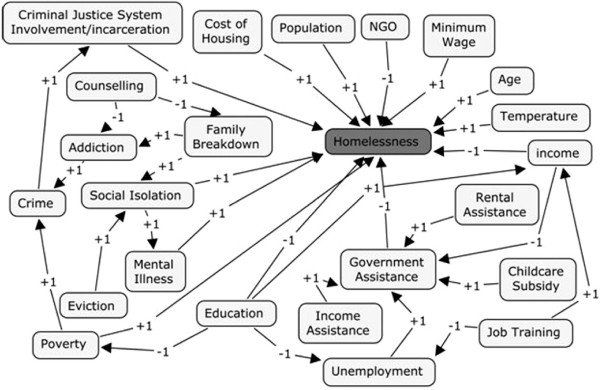The Trouble with Jesus
by Constance Hastings
The Trouble with Jesus: He consistently pushes up against the expected parameters of love.

Ok, Jesus, we get where you stand on most things, and we kind of like it. You give everybody a fair chance. You want better for us. You walk a fine line with those ideas, but you’ll probably get away with some of it. This might not be so bad.
You need to understand though your preaching, teaching, whatever you want to call it, just doesn’t seem to fly in the real world. Nobody likes being told what to do or how to live their lives. You need to come at this in a different way. Otherwise, we’re closing down this site.
They’re right. Sometimes, it’s better to let people figure it out for themselves, do the spiritual wrestling in their own thoughts or when they meet later in private gatherings. They then can take it or leave it, but for those who do get it, it lasts.
His stories knock around in the soul with his aim of reversing, redirecting. twisting what one has been taught to believe. That’s as dangerous as you can make it, and where Jesus’ trouble ultimately lies. Like with this one, The Good Samaritan.
This man, brilliant in religious law, was shrewd in his question. “Teacher,” he addresses Jesus, “What must I do to receive eternal life?” Those around him knew they were in for a really interesting exchange. Clearly, it was a test. The threat was underplayed but noticeable.
All good cross examination should have the opportunity for clarity. Jesus throws it back to him. “What does the law of Moses say? How do you read it?” Ok, counselor, let’s start on common ground. We’re both Jews. What would any good Jew tell you about it?
The lawyer is succinct and goes straight to the Torah with no problem. “‘You must love the Lord your God with all your heart, all your soul, all your strength, and all your mind.’’ And, ‘Love your neighbor as yourself.’” (Deuteronomy 6:5; Leviticus 19:18)
A perfect answer gets the perfect response: “Right!” The Great Commandment still holds weight with the Teacher. “Do this and you will live.”
Isn’t that what the lawyer wanted to hear? Likely not, for he pressed on, asking a question that not only would define terms for his legalistic mindset but also reveal his own issues in relationship: “And who is my neighbor?”
In asking the question, the lawyer asked for something that cut the law down to a manageable size rather than seeming generalities. Doing so also would set up the real test for Jesus in the questioning. If Jesus responded as if he knew better than the lawyer, he was playing with fire, threatening those who would have him removed quickly. His answer had to be one that would give the lawyer a pause, something to consider that was beyond the standard examination of the religious leaders. Jesus needed to be able to walk away for the time being and leave them not knowing what hit them.
Rather than giving him a law book answer, Jesus astutely changes tactics. He tells a story, a classic parable with the unique quality of teaching a lesson on life while also reversing the very thing the lawyer is attempting, testing Jesus with his own a test of character.
Jesus’ response draws in his audience. “A Jewish man was traveling on a trip from Jerusalem to Jericho, and he was attacked by bandits. They stripped him of his clothes and money, beat him up, and left him half dead beside the road.”
Who is my neighbor? This isn’t anyone I know, just a guy in the wrong place at the wrong time. What’s my responsibility to him? The moral question is posed. The key detail in the situation Jesus gives is the victim is Jewish. He’s one of us, he comes from the same heritage and faith we do. He’s going to need help and need it soon. Who is my neighbor? He is.
Jesus continues the story, and it doesn’t look good for his audience. A priest and a Levite who worked as a Temple assistant come by on the same road. Both clearly see the man, beaten and bleeding, lying there. But as it is, his brothers pass by on the other side.
It’s understandable, and all those hearing this story knew why. Stopping to help could open themselves to the same danger this guy had experienced. What’s more, it would have been more than messy. With all his injuries that put him near death, the man’s body had been crushed, smashed into a bloody pulp.
Therein lies the problem; exposure and contact with blood would make any who touched him ceremonially unclean by their own ritualistic law. Whatever sense of pity they may have felt, their positions made it difficult for them to intervene and help. So they walked around the poor soul on the other side of the road. “Love your neighbor” was just not their call.
Jesus, is that it? You going to leave this guy who’d been mugged to a deadly fate that is ignored, no help in sight? Is loving my neighbor to mean stick together in your own pack and just take care of your own? You sound just like they do. Who needs this! Life really is a crap shoot, and even Messiahs don’t roll the dice to help a guy out.
Jesus gives them what they want, an ending that ends well, but it’s an ending that slams everyone there, regardless of rank, prominence or class.
The man gets the help he needs and from an unlikely source, a Samaritan who dresses his wounds, takes him to an inn to recover, and pays the innkeeper extra for his care with a promise of more the next time the Samaritan came through that area again. He does the right thing and cares for his neighbor as God would have any who follow his law do so.
Good for him! And good for you, Jesus! You both passed that test and put that law-loving solicitor in his place. We get what you’re doing here. You’re letting the fat guys know what we think of their rules, and God’s will still gets done. Hey, we can go with this kind of thing. Give us more.
More? Get this. It’s Jesus’ turn now to ask a question, a follow-up to “who is my neighbor?” And in doing so, he throws the lawyer’s question 180 degrees in another direction.
“Now which of these three would you say was a neighbor to the man who was attacked by bandits?” Who is my neighbor gets a turn-around, a reversal of the original question. And in Jesus’ kind of question Neighbor no longer means the one who is in need.
The crowd was stunned. These people were all Jews, and Jews hated Samaritans for all the racial, ethnic and religious reasons the human race can dig up to separate one from another. In other words, what slammed Jesus’ listeners was their despised enemy was really the one acting neighborly and thus whom then they should love if they were to obey God’s commandment.
It was another way of saying what Jesus had instructed in that Sermon on the Mount in Matthew 5: 43-45, “You have heard the law of Moses said, “Love your neighbor and hate your enemy. But I say, love your enemies. Pray for those who persecute you. In that way, you will be acting as true children of your Father in heaven.”
The lawyer is forced to answer Jesus’ question. It’s a question that doesn’t allow for an ending that makes them feel good about what happened. They realize Jesus is calling them to love those whom they don’t want to love, the ones they have been taught to despise and hate for generations. Their enemy is now their neighbor, and if they are to follow the law, “Love your neighbor as yourself”, if they are to receive eternal life, they have to reverse and change all their relationships.
The lawyer replies with the “correct” answer, the one that will get him out of this test he started. “The one who showed him mercy.” The loathed Samaritan was the neighbor to the one in need.
Jesus holds the lawyer to the fire. If he wants eternal life, Jesus says, “Yes, now go and do likewise.”
Like this? Find it and more in the book offered below!
Named 2024 Notable Book Award by Southern Christian Writers Conference!
The Trouble with Jesus: Considerations Before You Walk Away by Constance Hastings
Ask for it wherever you buy your books, or just Click Here.
Subscribe to The Trouble with Jesus Here.












